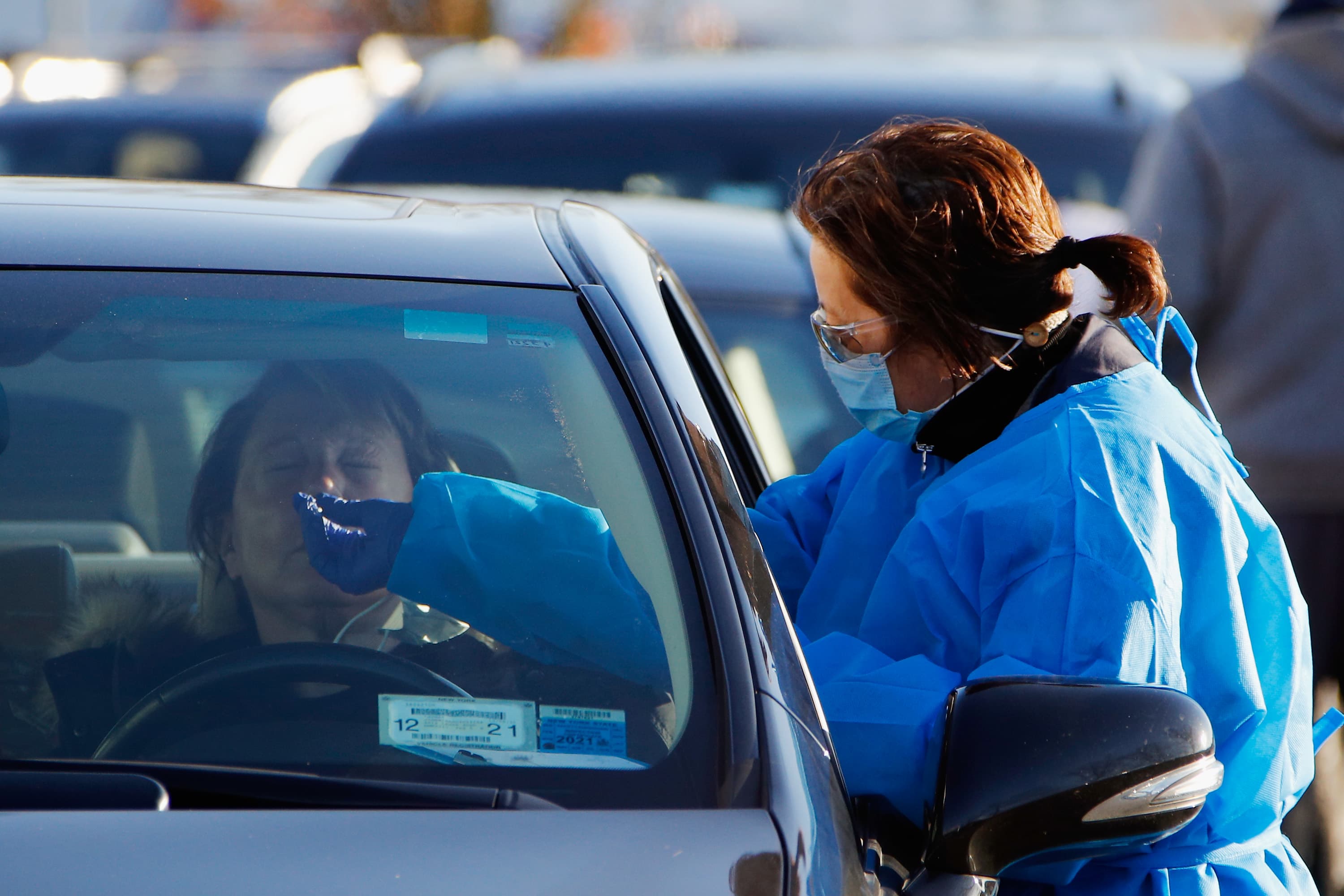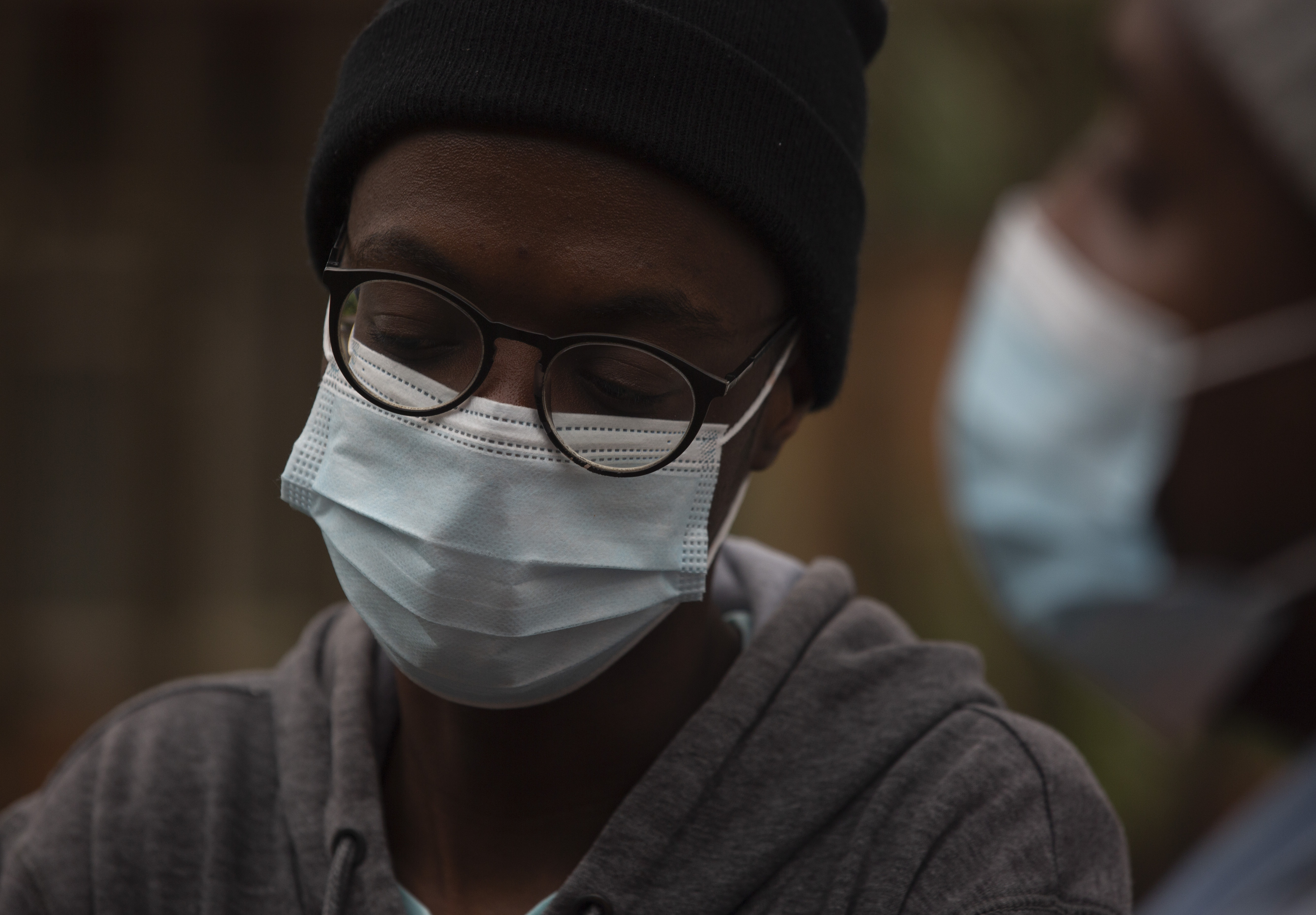A new strain of the virus that causes COVID-19, known as B.1.1.529, has been labeled the "Omicron variant" by the World Health Organization and classified as a "variant of concern."
It will be weeks until hard answers are available about things like reinfection potential, antibody resistance and susceptibility to vaccines -- but for now, this is what we know so far about this new variation on the SARS-CoV-2 virus.
What is the Omicron variant?
The variant known scientifically as B.1.1.529 was little known to the public until Nov. 24, when South African officials reported it to the WHO. It took the organization just two days to elevate its profile and status substantially.
Get Tri-state area news delivered to your inbox. Sign up for NBC New York's News Headlines newsletter.
"This variant has a large number of mutations, some of which are concerning. Preliminary evidence suggests an increased risk of reinfection with this variant, as compared to other" variants of concern, the organization said in a statement Friday.
"(This) variant has been detected at faster rates than previous surges in infection, suggesting that this variant may have a growth advantage."
As of the evening of Dec. 2, the variant has been detected in at least 15 countries on five continents, including Canada.
Media reports indicated that multiple of the confirmed cases were in vaccinated people, though South African doctors noted that the vast majority of the infected were unvaccinated.
On Dec. 2, the first cases of the variant were reported in the state of New York, including New York City. Five individuals were said to have been infected with the variant.
Here's what we know about the first New York omicron variant cases so far.
Signs and symptoms of the Omicron variant
Scientists say it is too soon to tell if omicron is more or less virulent than delta or other variants.
While omicron variant fears mount worldwide, no one knows for sure yet if it's linked to more severe illness or death, or if the variant is more prone to reinfection since scientific data from U.S. isn't available just yet.
Vaccine maker Moderna's CEO said Monday that omicron does seem more infectious, but that it will be up to 6 weeks to figure out with any certainty whether it's worse or not.
What is a Variant of Concern?
The WHO has four levels of classification for COVID variants, in ascending order:
- Variant Being Monitored
- Variant of Interest
- Variant of Concern
- Variant of High Consequence
The CDC defines a variant of concern as: "A variant for which there is evidence of an increase in transmissibility, more severe disease (e.g., increased hospitalizations or deaths), significant reduction in neutralization by antibodies generated during previous infection or vaccination, reduced effectiveness of treatments or vaccines, or diagnostic detection failures."
The Delta variant, for example, which caused a surge in infections in the United States over the summer, was a variant of concern (sometimes called a VOC).
What is the response to the Omicron variant?
Less than 48 hours after the world found out about B.1.1.529, now known as Omicron, most major governments instituted travel bans to and from southern Africa.
The Omicron variant has not been seen in the United States yet, but federal and state authorities say they are actively looking for it.
Both Pfizer and Moderna have said that if in fact the variant is more resistant to their vaccines than past strains, they could develop and ship a modified vaccine within about 100 days.
New York Gov. Kathy Hochul declared a state of emergency and days before it was eventually detected in the state that it was just a matter of time. "It's coming," she said.



